

NAVIGATING







Staying true to our values
The impact: themes from MCN’s federal impact survey
Resources to navigate uncertainty ahead

Defending against federal funding cuts
Standing up for nonprofits at the Capitol



04
Staying true to our values
In this moment, how can we as a sector, and as individual nonprofits, stay true to our values?
Nonprofit resources to support you
Subscribe MCN’s e-newsletters by interest area to receive the latest nonprofit resources.

Nonprofits are a force for good. We’re here to help.

As one of the largest state associations of nonprofit in the country, the Minnesota Council of Nonprofits (MCN) joins nonprofits across interest areas to advance important nonprofit issues.
MCN is a trusted ally and advocate for you. Visit our website to learn how MCN can support your nonprofit: www.minnesotanonprofits.org.
Relevant workshops & conferences
Timely nonprofit data & research
Impactful state & federal advocacy
Strong member network & benefits
Minnesota Council of Nonprofits
2314 University Avenue West, Suite 20
St. Paul, MN 55114
Phone: 651-642-1904
Fax: 651-642-1517
info@minnesotanonprofits.org www.minnesotanonprofits.org





05
The impact: themes from MCN’s federal impact survey
Understand the impact of federal decisions in Minnesota with an analysis of MCN’s federal impact survey responses
06
What to know about 2025 state legislative session
Problematic proposals on the table and how to help
08
On the move
Celebrating new nonprofit staff and board members
10
Resources to navigate uncertainity ahead
MCN resources to help you achieve your mission in an uncertain year
12
Upcoming nonprofit trainings
07
Guest column: Standing up for nonprofits at the Capitol
What can we do when state lawmakers doubt nonprofits?
09
Defending against federal funding cuts
Minnesotans are at significant risk of losing federal safety net services
11
Living anti-racism values to combat homelessness
2024 Nonprofit Mission Award recipient for Anti-Racism Initiative
Opportunities to prioritize your professional development
Letter from MCN’s President & CEO
I never thought I would waver in my personal commitment to equity and justice. Let me rephrase that: my commitment has never wavered, but my willingness to publicly stand for it certainly has. I’m angry, frustrated, and scared. I find myself pausing before using certain words that I wouldn’t have hesitated to say just a month ago. I know I’m not alone in feeling this way.
I recognize that being able to waver in this moment is a privilege. Our neighbors and friends who are low-income, immigrants, undocumented, unhoused, transgender, Black, Native, Asian, and Latino/a are not only terrified but are being actively attacked by systems that should be protecting them. Children, elders, people with disabilities, veterans, rural communities, and those impacted by geopolitical crises may lose access to essential services and safety nets—services like food, health care, child care, and more. Nonprofits that support these communities are facing unimaginable challenges and uncertainty, including loss of funding and potential threats to their tax-exempt status. DEI (Diversity, Equity, and Inclusion) work has always been precarious at best, and many with the least to lose deprioritize this “core value” at the first sign of inconvenience. The most vulnerable communities once again bear the weight of these challenges because, for them, survival literally depends on it.
to amplify the voices of those who are silenced. And give yourselves grace when you can’t or have to make tough decisions. Know that the work will continue, and there will always be a place for you. Trust in your community—they know what they need to thrive.
Nonprofits touch the lives of people every day. As of this writing, nonprofits are facing critical cuts to federal funding, executive orders that threaten our operations, the livelihoods of nonprofit professionals, and, most importantly, our ability to serve our communities.

Nonoko Sato President & CEO
We are a sector that fiercely defends our nonpartisanship, First Amendment rights, and core democratic values. We don’t have to agree on everything—and that’s the point. Regardless of our identities or status (socio-economic, geographic, political, racial, and ethnic), all citizens of this country have a right to vote, and all residents have a constitutional right to be counted. Use your voice to educate lawmakers about your work and its impact. Share what would happen to your community if you could no longer serve them. Find your coalitions, stay informed, and respond to calls for action from trusted sources. Your state association of nonprofits is a good place to start. In Minnesota, MCN has a consolidated page of resources for nonprofits.
In this moment, how can we as a sector, and as nonprofits, stay true to our values?
Ground yourself in community and hold yourself accountable
In 2021, the board and staff of MCN collaboratively created a list of our core values. This statement continues to guide our work—from program development and strategic priorities, to how we hire, support our staff, and structure our board meetings. It is one of the most critical documents we use daily. Most importantly, it holds my board, my team, and me accountable to the nonprofit members who trust in our work, and we don’t take that responsibility lightly.
Nonprofit values, even if not publicly stated, are rooted in the communities we serve. For us, we are guided by the expertise, vibrancy, diversity, and collective care of our nonprofit sector. Recognize and utilize your own privilege
Immerse yourself in joy
At the heart of nonprofit work is joy. Our collective vision for thriving communities must include laughter, beauty, creativity, inspiration, and celebration. Joy is a core value in our work. Spend time with loved ones. Take a break from the news, at least for a while. Sleep in (cue the laugh/cry from parents). Go watch or listen to something beautiful (support nonprofit arts!). Seek out and learn from the stories and art of our Black, Native, immigrant, transgender, and historically resilient neighbors. Rest, so you can take care of others tomorrow.
There is always hope, and what we choose to do in this moment matters.
In community,


Shonni Krengel Research Manager
On January 28, 2025, MCN launched a survey to understand the impact of the federal government actions and decisions on Minnesota’s nonprofit sector.
Nonprofit survey responses have helped MCN share accurate information about the wide-spread negative impact, both on nonprofit operations and Minnesota communities, with legislators, the media, and the public, and has helped us to advocate more effectively in our work to protect Minnesota’s nonprofit community.
This is an analysis of impact themes found in 174 responses, from nonprofits operating across 67 Minnesota cities, and a few out-ofstate, received between January 28 and February 26, 2025.
How do you anticipate the current Executive Orders and funding freezes will impact the community you serve? Major themes:
• An immediate effect—Minnesota communities are already struggling and a halt in any services would be catastrophic.
• Reduce access to highly utilized services and programs— nonprofits are already struggling with an increase in demand, changes to funding would reduce services.
“Loss of funding means cut-backs in (or loss of) already stretched services, especially to older and needier rural residents.”
- Nonprofit in Hackensack.
• A domino effect of larger societal trends—nonprofits who provide services in one area (e.g., housing) will see an increase in demand for services due to changes in another service area (e.g., food scarcity).
“Changes to the safety net (Medicaid, hunger relief, disability services) plus a lack of eviction protection are the next big threat raised by the Executive Orders. Any changes could increase homelessness dramatically and heighten the effects of the fentanyl crisis - leading to an enormous public health crisis.”
- Nonprofit in International Falls.
• Scared communities—nonprofits are reporting that their clients and communities are scared, and some are no longer
seeking services, especially immigrant communities.
“Clients of ours who are refugees or immigrants have expressed a great amount of worry about being targeted by ICE, regardless of their status. Some are considering not going to work, school, the doctor, or possibly even our food shelf program.”
- Nonprofit in St. Louis Park.
How do you anticipate the current Executive Orders and funding freezes will impact your organization’s ability to operate? Major themes:
• Reduction or complete stoppage of programs and services, and staff layoffs—the biggest impacts reported.
“…even 1 less staff person means fewer services in the community.”
- Nonprofit in Minneapolis.
• Funding shifts—Nonprofits will become more reliant on private donations and grants, and acknowledge that these sources of funding will now become more competitive.
“We don’t currently get federal grants, but many of the area nonprofits do. This means that other funding is going to get more competitive and could be detrimental to our organization because funding is already difficult…” - Nonprofit in Elk River.
• Need for immediate action—Moving through the uncertainty and their anxiety / fear, immediate actions reported include contingency planning, addressing and adjusting their budget, and planning for the impact of reduced capacity / staffing.
“With the funding freeze, we need time to develop contingency plans and revise current budgets. This takes time away from our mission. Currently, we will be unable to move forward filling open positions. This means more work on our staff. Over time, we may have to cut positions and limit our services.”
- Nonprofit in Duluth.
We are still collecting impact stories. Your input is invaluable in helping MCN more effectively advocate. Share real-world examples of how your nonprofit is or will be impacted by federal decisions.

Marie Ellis
Public Policy Director
The 2025 legislative session will be pivotal for nonprofits that work with the State of Minnesota through grants and contracts. Both parties have expressed a commitment to addressing fraud in state funding this session. With a one-seat DFL lead in the state Senate, and a likely tie in the House after a special election, every vote counts.
A proactive approach: four key reforms MCN had hoped that this session would present an opportunity for nonprofits to lead on positive grantmaking reform, concentrated on: raising the audit threshold, adopting a minimum administrative cost rate, simplifying grant applications, and reforming reimbursement-based contracting.
Unfortunately, public pressure on lawmakers to “fix” fraud has created an environment that is inhospitable to these types of changes. Still, MCN and partners continue to refine these proposals while we wait for the right time to present them to legislators.
Several current legislative proposals risk imposing excessive administrative burdens on nonprofits, making it harder to deliver essential services to Minnesota communities, including:
• Requiring unannounced in-person monitoring visits for all grants over $50,000. This is problematic because this would likely be unworkable for state agency staff and result in incomplete data if appropriate nonprofit staff are not on site.
• Prohibiting grants to nonprofits that pay any employee more than the governor’s salary (about $150,000 in 2024). This is problematic because the IRS code already requires that compensation be reasonable.
• Adding another layer of approval for waivers and deadline extensions. This is problematic because this would slow communications between the state and contractors.
• Barring state agency employees and elected officials from serving as voting members on nonprofit boards. This is problematic because conflicts can be sufficiently managed through strong ethics policies. As some of the
most civically engaged people, their expertise on nonprofit boards is invaluable.
These proposals would, at best, introduce additional layers to the grantmaking process. At worst, they would prevent nonprofits from responding to state requests for proposals (RFPs), leaving agencies without partners to live out state priorities.
It’s clear there is bipartisan misunderstanding of how nonprofits operate and what it looks like to partner with the state through a contract or grant. Legislators have made statements like, “Nonprofits don’t need to report anything. We just give them a handout with no oversight.”
If that made you cringe, please contact your lawmakers! Through contract-for-services, nonprofits support critical community infrastructure in every legislative district. If you are a nonprofit that receives state grants, your story is especially impactful. Educate lawmakers on what the application process was like, what materials you needed to provide, and what and how often you report on how funds were used.
In order to craft better policy, legislators need to hear your real-world stories and understand the impact of proposed changes. The path to meaningful reform must be informed by your expertise and fueled by persistent advocacy and policy work. By working together, we can ensure Minnesota’s grantmaking system is fair, transparent, and supportive of the nonprofits that keep our communities strong.
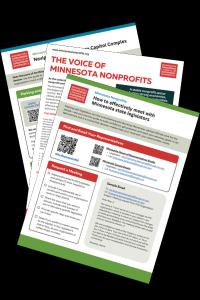
Access new resources from MCN to support your advocacy goals and contact legislators with confidence:
• How to effectively meet with legislators.
• Navigating the Minnesota Capitol Complex
• The Voice of Minnesota nonprofits
column by Kenza Hadj-Moussa, MCN Board Chair 2017-2020, O’Connell Consulting
These days, there are a lot of issues keeping nonprofit leaders and staff awake at night. Not helping our nervous system is a chill from some state lawmakers who seem to be bringing newfound skepticism and mistrust of nonprofit organizations and the broader nonprofit sector.
As a former board chair of the Minnesota Council of Nonprofits, I know there is always work to do to educate policymakers, funders, reporters, and other interested parties about the unique qualities of the sector and the value nonprofit organizations bring to our state.
The reality is that most nonprofits accomplish incredible things with limited resources. In Minnesota, we are home to some of the country’s most effective, best-in-class organizations, with support from MCN, one of the largest and strongest associations for nonprofits in the nation.
Minnesota nonprofits are led by passionate staff and leaders that provide care and education, steward the environment, bring joy and community through the arts, advocate for change, and fill essential gaps in social safety nets. We are home to 100-year-old institutions and new nonprofits. Both are able to respond to community needs and opportunities in ways that the private businesses and governments are often not able, interested, or designed to do.
So, what can nonprofits do when state lawmakers in Saint Paul seem to suddenly doubt the value, professionalism, or effectiveness of their organization–or immediately associate nonprofits seeking State funding or contracts with fraud?
The truth is that there is not a silver bullet or simple message to combat harmful, inaccurate, or incomplete narratives about nonprofits. But there is much individual nonprofits and MCN can do to change the tide.
First, this is not the time to hide. Every nonprofit organization that received state funding in recent years, particularly through direct appropriations, should be visible at the Capitol and with lawmakers. Share updates on your program. Go to a lobby day. Tell your success story, and show where there is still need. Reach out to your legislative champions to let them know how state funding is being used, and the impact it is making. If it is not enough — let them know.
Even with historic investments, we still have incredible needs across our state for housing, health care, child care, climate action, and more.
Second, do not stop building relationships with lawmakers when the legislative session is over. Consider inviting your state legislator or relevant committee members on a site tour of your organization over the summer or fall.
While it can be frustrating when it seems lawmakers don’t “get” nonprofits, we have to remember that Minnesota has a citizen Legislature. We are represented by normal people who are part-time policymakers. Many of them are new to the job and still shaping their worldview as lawmakers based on experience they have with Minnesotans at the Capitol and in communities.
Third, the ultimate focus on fraud at the Legislature is not about nonprofits, but about government spending and oversight. While there is significant work individual nonprofits can do to educate elected officials about nonprofits, organizations should be mindful of the broader context.
There is no harm in government oversight, accountability, or rooting out fraud committed by a few bad actors. Our government can and should fight for every dollar to go where it is needed.
However, there is an existential crisis if narratives around fraud, committed by a nonprofit or any other entity, are used as an excuse to undermine the essential role of our government or justify austerity that ultimately impacts the most vulnerable people.
Our state budget is a moral document and reflects what we value as Minnesotans. This is true whether funds flow to communities through state agencies, local governments, school districts, nonprofits, or elsewhere.
As nonprofits weather uncertainty together, there is no need to feel ashamed for your work or intimidated at the Capitol. There is value and dignity in serving your community and working with purpose. Ask for what your community needs. This is the time to make your voice heard.
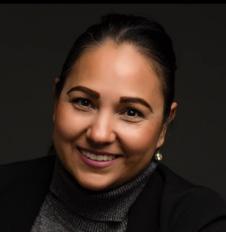

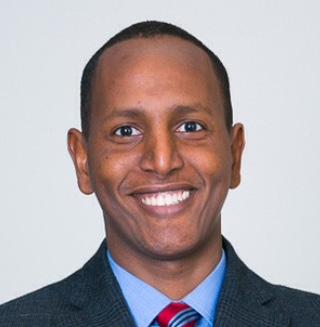

María Steffel joined the Neighborhood Development Alliance as executive director and chief manager.
Joe Imholte joined The American Swedish Institute as vice president of experience.


ServeMN welcomed Mohamed Omar as chief operating officer and Jessica Ayers-Bean as vice president of development, and announced the promotion of Lindsay Dolce to chief policy and growth officer and Dr. Sandy Pulles to chief impact officer.



Jody Emmings joined Interfaith Action of Greater Saint Paul as chief program officer.
Samuel Benjamin of PwC joined the Sexual Violence Center board of directors.

Jennifer Eaton joined the Northland Foundation as program coordinator, and Sumair Sheikh of LISC Duluth joined their board of directors.


Nalani McCutcheon was named executive director of Conservation Corps Minnesota & Iowa.
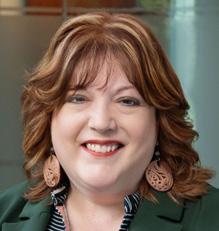
their board of directors.
and
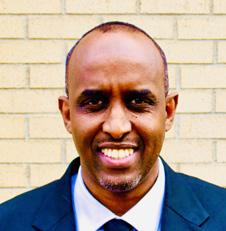



HousingLink announced four new board members, Rashid Issack of Minneapolis Public Housing Authority, Jenny Larson of Three Rivers
Community Action, Laura Russ of Aeon, and Kahari Smith-Brewer of the City of St. Paul.


Dakota Woodlands welcomed Colleena Carlisle as executive director.


The Animal Humane Society named Joy King as CEO and welcomed two board members, Maha Abouelenein of Digital and Savvy and Sheryl Caspers-Prince of Brillect.
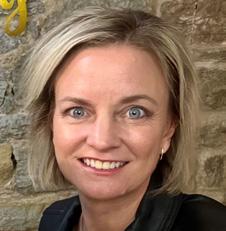



Molly Boyum joined the Minnesota Zoo as director of major gifts.
The Saint Paul & Minnesota Foundation welcomed Katya Zepeda as director of advocacy, community engagement, and equity.



Make-A-Wish Minnesota welcomed new team members, Tori Schrantz as director of marketing and communications, Betsy King as events and development manager, Maria Turbi as database administrator and analyst, Karissa Zimmerman as wish coordinator, and Alyssa Mitchell as marketing coordinator.


The Minnesota Independence College and Community welcomed MarLee JohnsonVolk as associate director of development.

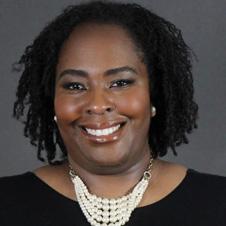
Stratis Health announced Kristina Bloomquist as senior vice president of quality, safety, and health equity, and appointed two new board members, Glady Chuy of Convergence Integrated Care and Karon Phillips of the Trust for America’s Health.




Four new board members joined Can Do Canines, Maha Brauch of Affinity Plus Federal Credit Union, Roy Hosek, retired, Joy Johnson-Lind of Children’s MN, and Heather Leide of the Metropolitan Airports Commission.



Lifeworks welcomed three board members, Dexter Davis of Ecolab, Barry Gisser of American Public Media Group, and Jeff Kletti of Lancaster and Randolph Financial Advisory Services.
Celebrate your new staff and board members!
MCN member organizations are invited to submit your staff and board announcements to Laura Dunford.
Please include their name, title, and photo if available. MCN cannot guarantee all announcements will appear in Nonprofit News.

Laura Mortenson Communications Director, Minnesota Budget Project
Minnesotans have long supported the role of public services in building a future of shared prosperity and supporting families and neighbors to get through tough times, like the loss of a job or a long-term illness. Most folks appreciate the web of federal, state, and local governments, along with nonprofit organizations, that keep food in fridges, roofs overhead, older folks in their homes, and much more.
But Minnesotans are at significant risk of losing those public services if federal policymakers go forward with proposals that would slash funding to safety net services like Medicaid and food assistance through SNAP.
At the time this article went to print, federal policymakers were seeking to move quickly through a special budget process that could see these large funding cuts enacted as early as May.
The Minnesota Council of Nonprofits has alerted our Congressional representatives of the hardship those funding cuts would create.
As nonprofits, you play a vital role in educating policymakers about how their decisions will affect your communities and the people you serve.
You know how large funding cuts to things like health care and food assistance, and new policies that exclude our immigrant neighbors, will harm families and ripple throughout your community. It’s you who knows best how many people are served by your mission, what it takes to keep your doors open, and that as nonprofits, we don’t have the resources to make up the difference if federal policymakers make big funding cuts. Sharing those specific impacts with policymakers is essential.
MCN has resources and tools to help you share those impact stories. And if you haven’t already, you can connect to your national organizations or look for coalitions in your mission areas to support that advocacy.
Medicaid is one area where Minnesota nonprofits are already acting to defend against federal threats. In December, more than 130 health care organizations and advocates sent a letter to our Congressional delegation warning them of what large cuts to Medicaid would mean for the health care of nearly 1.4 million Minnesotans. These are babies, pregnant people, students receiving mental health care, adults living on low incomes or who are between jobs, people with disabilities, and elderly people in nursing homes or getting supports at home.
For more than 50 years, Medicaid (also called Medical Assistance) has meant Minnesotans of all ages who do not get health insurance from their employers and cannot afford to pay for private health insurance could get the care and services they need, when they need them.
Minnesota received about $12 billion in federal Medicaid funding in 2023. If federal policymakers substantially cut funding for Medicaid, that means a big reduction in state resources dedicated to health care, creating a large hole in the state budget and pressure on other vital state services. Neither the state of Minnesota nor nonprofit organizations can make up for the billions of dollars in cuts to federal safety net services being considered.
It’s time to join advocates across the state and country acting to protect the basic public services Minnesotans value.
By sharing our missions and explaining the harm of proposed cuts, Minnesota nonprofits can help ensure folks can get medicines they need, children have full bellies at home and at school, and our communities can thrive.
Take Action: Send a letter to Congress using our letter writing tool and share this call to action link with your networks, encouraging Minnesotans to ask their representatives in Congress to reject harmful funding cuts or policy changes to Medicaid.
Explore other tools to share what’s at stake with the proposed harmful cuts to Medicaid with this Communications Toolkit.
To keep up with the latest federal budget proposals, subscribe to the Minnesota Budget Project’s News and Tools
Nonprofits continue to face challenges of financial stability, as reported in MCN’s 2024 Current Conditions Survey. 79 percent of respondents said their nonprofit would exhibit financial distress in less than 12 months in the current environment. Add on the new Administration’s Executive Orders (EOs) and Memorandums covering a broad range of issues that impact nonprofits and the communities we serve, and we’re are facing a very uncertain and unstable environment to navigate.
MCN is here to help. Below are resources to help you achieve your mission and sustainability in an uncertain year.
MCN is monitoring and vetting the latest news, resources, and calls to action on federal decisions impacting nonprofits.
Access our resource homepage including: Executive Orders affecting nonprofits, the latest policy updates, resources to support sustainability during uncertainty, litigation tracker, and Executive Order timeline and resources.
Being a MCN member means belonging to a statewide community of care, knowledge, and action. MCN is introducing a fresh approach to connecting with members to share an expanded view on the nonprofit sector’s health, need-to-know state and federal policy activity, and resources for keeping your operations and people strong.
Register for MCN’s second Member Briefing, May 7 virtual. There will be time for questions and tips for you to take back on how to incorporate and personalize sector data into appeals to funders and legislators. Briefings are free but registration is required.
BenefitsMN is MCN’s association health plan and offers eligible organizations stable, robust medical plans at competitive prices. BenefitsMN’s goal is to help Minnesota’s nonprofits recruit, support and retain the best talent. In 2025, more than 145 nonprofits are participating in BenefitsMN, with over 2,600 employees and their partners, spouses and dependents enrolled.
BenefitsMN will be offering access to other voluntary benefits this year, as it continues to support mission-based work. Request a quote.
Contact legislators with confidence
2025 is certainly a unique time for nonprofit advocates. MCN has created new one-pagers to support advocates navigating this new normal, including how to effectively meet with state legislators and navigate the Capitol Complex during construction.
MCN aims to help nonprofits access the People’s House as much as possible — let us know other resources that would be helpful!
The newly researched and published 2025 Minnesota Grants Directory is here to help nonprofit grantseekers gain an in-depth understanding of the state’s most active foundations and corporate programs, including giving priorities, geographic focuses, and types of grants available.
Remember! MCN nonprofit members get access to two free publication vouchers each year, so you may access the 2025 Grants Directory at no cost.
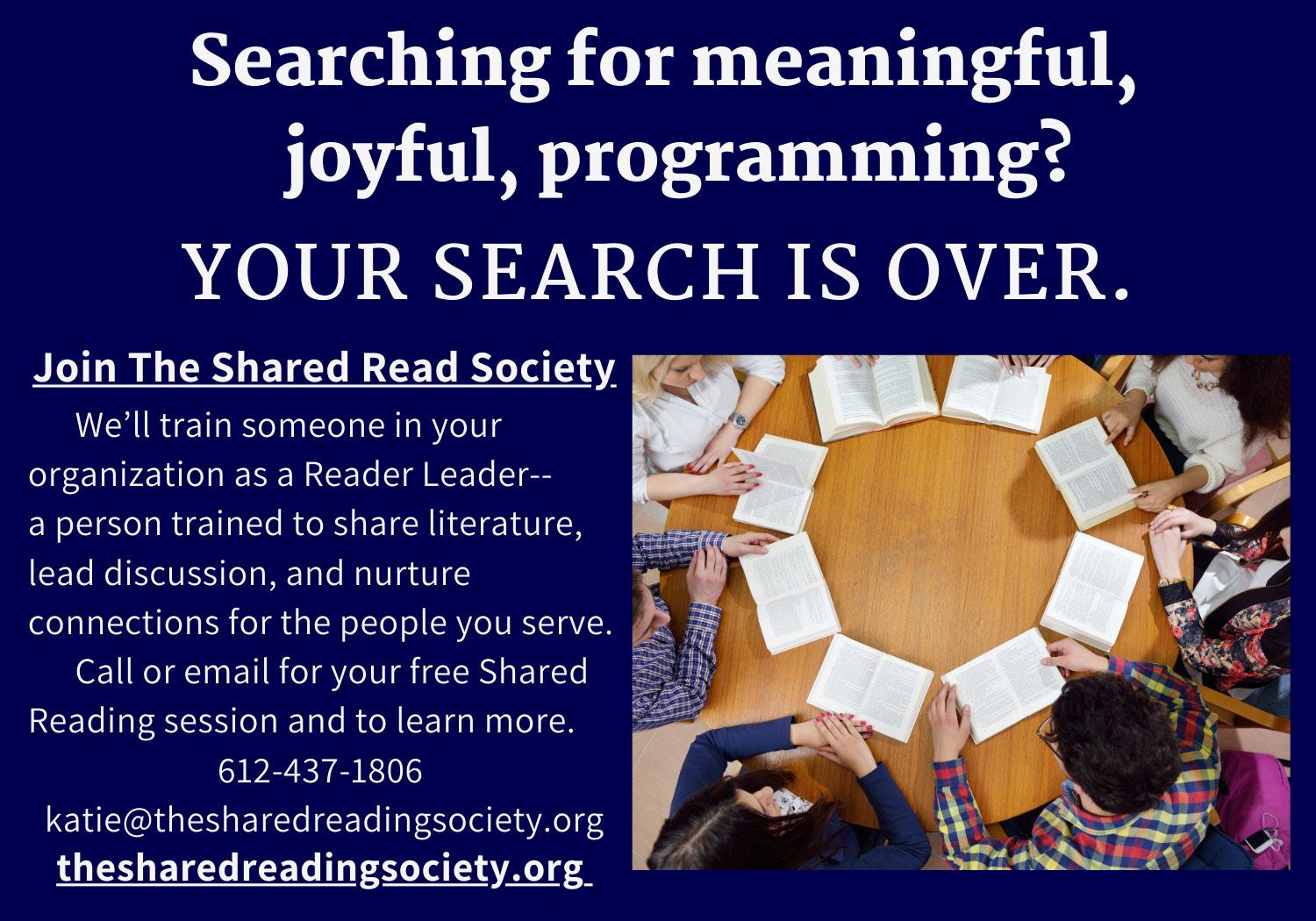

John Wurm
Organizational Development & Engagement Director
Each year, nonprofits across Minnesota make incredible contributions to our state’s high quality of life. The Minnesota Nonprofit Mission Awards were created specifically to honor these contributions. Since 1987, MCN has been showcasing the work of Minnesota’s outstanding nonprofits through the Nonprofit Mission Awards in the categories of Innovation, Anti-Racism, Advocacy, and Responsive Philanthropy.
Voted by MCN member nonprofits, we are honored to celebrate the 2024 Mission Award recipient for Anti-Racism Initiative, Simpson Housing Services.
For over 40 years, Simpson Housing Services has helped thousands of Minnesotans gain long-term stability through housing by supporting and advocating for people experiencing homelessness. Through key programs including extended-stay shelters; supportive housing programs for youth, single adults, and families; and developmental and educational services for children, Simpson annually supports more than 2,000 people transitioning out of homelessness, including 300 families with 650 children.
With approximately 80 percent of participants representing BIPOC communities, compared to twenty four percent of all Minnesotans, Simpson understands the importance of addressing the systemic racism that
leads to such disparities in care and opportunity. Armed with this understanding, the organization has continually worked to become antiracist by dismantling racism and saviorism internally and externally.

Externally, Simpson challenges systemic racism by advocating for change with partners, government agencies, funders, and supporters. Simpson has worked to educate the local healthcare industry on how racism impacts BIPOC health disparities.
They developed a transitional framework in which participants determine their own stability goals as equal partners, and have also partnered with housing developers and property managers to create equitable tenant screening requirements and improve participants’ access to housing, which impacts other renters.
Internally, BIPOC staff leaders at Simpson developed an anti-racism framework, which guides the agency’s work from programs to operations, and builds a culture of collaboration, authentic relationships, openness to change, and long-term investment in racial justice. Pillars of this framework include:
• Valuing and committing to spaces led by BIPOC staff, such as the Anti-Racism Lab where staff learn about white supremacy, share experiences, and create anti-racist solutions.
• Investing in equitable policies and benefits, including free legal, health, and financial tools available 24/7, and equitable recruitment and staff retention. BIPOC individuals comprise 49 percent of staff and 36 percent of internal promotions to management positions.
• Committing critical resources and time (1,200+ annual staff hours) to mandatory trainings, which deepen trust and shared commitment among staff and volunteers. Sessions include unpacking bias and addressing microaggressions; understanding intergenerational trauma and utilizing compassionate accountability with the Black community; and creating volunteer programs based on community, not saviorism.
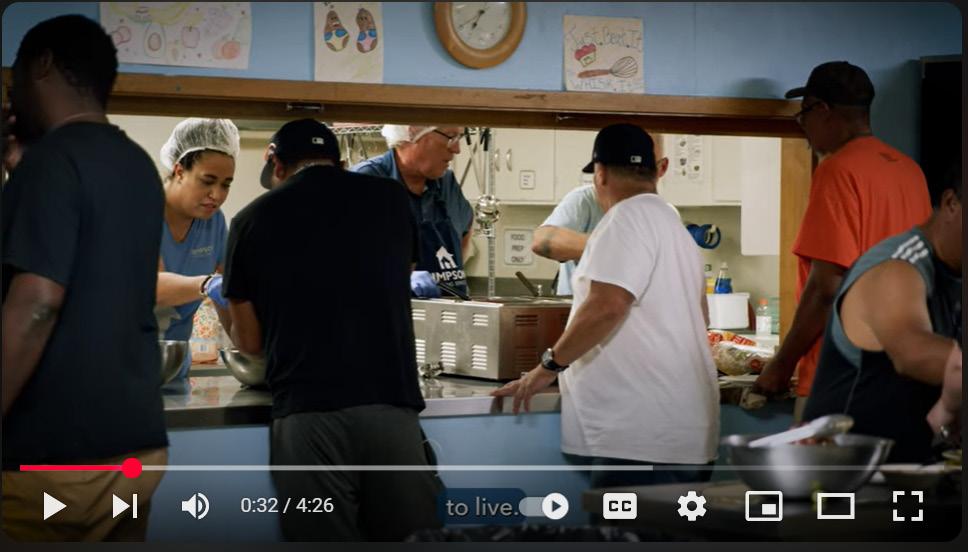
Simpson is moving beyond difficult conversations to create systemic change within the agency and community.
As a result of this work, the Minnesota Council was pleased to present the organization with the 2024 Minnesota Nonprofit Mission Award recipient for Anti-Racism Initiative
Learn more about Simpson Housing Services
